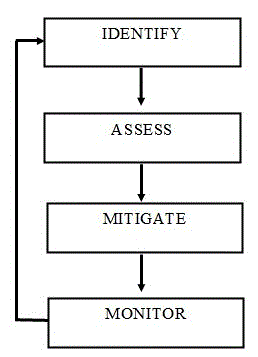Professional risk rating models are typically drawn up based on a number of assumptions about the underlying causes of political hazards, many of which may not be explicitly stated. Apart from the obsolescing bargain approach, which explains political risk in terms of changes in the relative bargaining power of the principal actors, there are at least six casual models.
- Relative deprivation approach. Political risk is the result of national frustration at the inability of the host country to achieve its developmental goals relative to that of other countries. This leads to the adoption of nationalist economic policies.
- Structural approach. Political risk is the result of the political sensitivity of a particular industry, often arising from the nature of its products or the political connections of established local players.
- Actor approach. Political risk is the result of conflict within the political elite.
- Regime change approach. Political risk is the result of the replacement of one political elite with another, often involving major changes in governmental forms.
- Institutional approach. Political risk is the result of weak national institutions, particularly the judiciary, central bank, national legislature and the local stock market regulatory authority.
- Social conflict approach. Political risk is the result of social conflict arising from tensions between economic classes or between religious, linguistic or ethnic groups.
Various attempts have been made to build such assumptions about the causes of political risk into probabilistic models. Because they often include economic variables as well, some of these models are more properly described as producing country risk ratings (and often used as credit rating tools) rather than as political risk assessments. Companies and organisations producing such ratings include Moody's Investor's Service, the Economist Intelligence Unit (EIU), the Control Risks Group, Euromoney, Political & Economic Risk Consultancy (PERC), Political Risk Services (PRS), and Institutional Investor.
Although the rating models used by these companies vary widely in design, approach and level of sophistication, none are fully transparent. Instead, they usually depend at least partly upon the subjective assessment of the respective company's analysts or other experts. To a large degree, this reflects the difficulty of quantifying the risks involved (how do you measure the extent of corruption in a country, for example?). However, it does have the advantage of providing clients with an independent assessment of risk, thus overriding the biases of in-house experts.
The fact is, however, that no political risk model yet devised is without fault. Ratings based on expert assessments can be criticised not only for potential bias, but also for failing to make casual relationships explicit. Strict econometric models, on the other hand, suffer from the difficulty of acquiring data that is both reliable and current. Sadly, in-house models are little better. Not only are they expensive for the company concerned, they are also time consuming and lacking in geographical reach.
Is the Philippines more risky than Indonesia or Thailand? And how to these countries compare with China? Different political risk models will likely provide different answers. It is therefore important to understand the parameters being used before employing them in conjunction with studies done internally.

